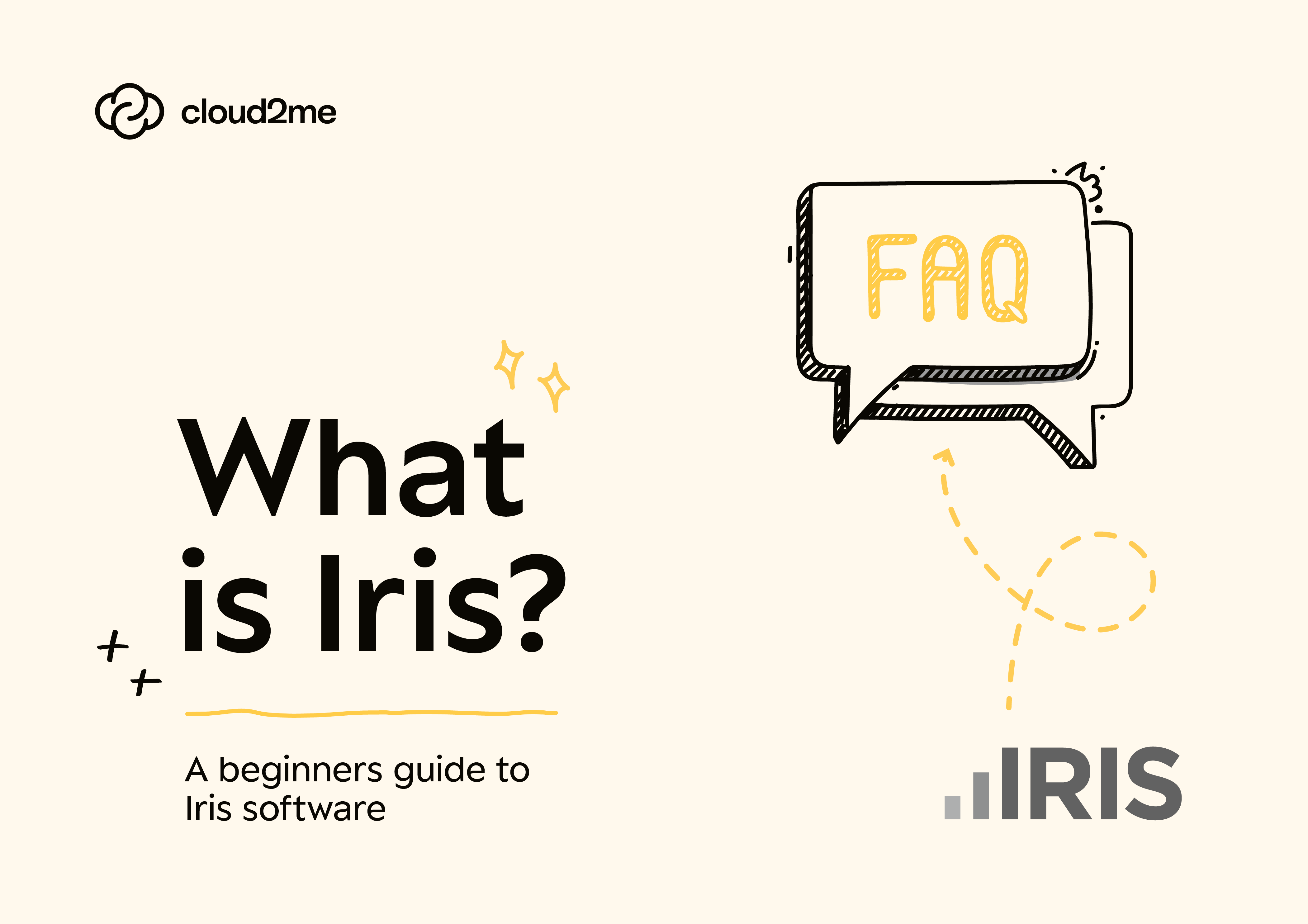IRIS accounting software is a comprehensive suite of tools designed specifically for accountants, offering a range of solutions that streamline and automate various aspects of accounting practice management. It covers essential functions such as tax compliance, payroll, bookkeeping, and client management, allowing accountants to handle their clients’ financial needs with greater efficiency and accuracy.
IRIS accountancy software also provides features that help accountants maintain compliance with evolving tax regulations and industry standards. It includes tools for preparing and submitting tax returns, managing audits, and handling complex financial reporting. With its user-friendly interface and robust support system, IRIS software is widely adopted by accounting firms of all sizes, helping them enhance productivity, improve client service, and stay competitive in a fast-changing financial landscape.
A brief history of IRIS accounting software
IRIS Software was founded in 1979 in the United Kingdom, initially focusing on providing software solutions to small and medium-sized businesses. The company quickly recognised the growing business need for specialised tools in the accounting sector and began developing software tailored specifically for accountants and financial professionals. Over the years, IRIS expanded its offerings, creating a suite of integrated products that addressed the complex needs of accounting practices, including tax compliance, payroll, and practice management.
Throughout the 1990s and early 2000s, IRIS solidified its reputation as a leading provider of accounting software in the UK, acquiring several smaller companies to enhance its product lineup and broaden its market reach. These strategic acquisitions allowed IRIS to offer a more comprehensive suite of tools, including cloud-based solutions, which became increasingly important as the industry shifted towards digitalisation and automation. The company continued to innovate, adding features that kept pace with regulatory changes and the evolving needs of accounting professionals. Over the course of 20 years, IRIS enjoyed uninterrupted revenue growth, expanding turnover from £5 million in 2002 to £80 million in 2019.
In recent years, IRIS solutions have focused on further expanding its cloud-based services and enhancing its accounting software’s integration capabilities, allowing for greater efficiency and collaboration within accounting firms.
Why is IRIS so popular with accountants and business
IRIS accountancy suite is favoured by businesses and accountants as it helps improve the way they work by enhancing the efficiency of their business processes. Their software and services are utilised by professionals in accountancy, education, payroll, HR, and finance to address some of the most critical operational challenges those sectors face. Whether it’s submitting a tax return, ensuring timely payments, enhancing workplace experiences, or fostering engagement between parents and schools, IRIS accounting software helps its customers save money and time.
IRIS accountancy suite also enables organisations to make better business decisions by developing integrated accounting software solutions that reduce administrative burdens, streamline business processes, and allow clients more time to work on running their business. Their software and services support accountants, schools, and teams in payroll, HR, and finance by tackling key operational challenges. These challenges include staying compliant with legal requirements, significantly reducing the time spent on administration and reporting, and generating actionable data insights for more informed decision-making.
What are IRIS’s most popular desktop applications for accountants?
IRIS currently list 65 products across all their supported sectors (Accountancy, HR, Payroll and Education), of which 37 fall specifically under Accountancy and Payroll services.
A selection of these accountancy-focused desktop applications sit under what is known as the IRIS Accountancy Suite. This is a flagship product for accountants, offering a comprehensive range of applications to manage all aspects of an accounting practice. It includes modules/applications like IRIS Accounts Production for financial statement preparation, IRIS Business Tax and IRIS Personal Tax for handling corporate and personal tax returns, and IRIS Practice Management for overseeing the day-to-day operations of the practice:
IRIS Accounts Production:
This accounting software is designed for the preparation of statutory financial statements. It allows accountants to produce fully compliant accounts for a wide range of business types, including limited companies, partnerships, and sole traders. The software is known for its ability to automate much of the accounts production process, saving time and reducing errors.
IRIS Business Tax:
IRIS Business Tax simplifies the process of completing tax returns by automatically drawing all the necessary information from clients’ accounts stored in a central database. It automatically handles addbacks, disallowable expenses, and capital allowances, making the tax return process quicker, more accurate, and more reliable.
IRIS Personal Tax:
IRIS Personal Tax is focused on personal tax returns, providing accountants with the tools to handle self-assessment tax returns for individuals, including complex cases involving multiple sources of income.
IRIS Practice Management:
IRIS Practice Management is software that is designed to streamline the management of an accounting practice by handling client data, deadlines, workflows, and communications. It integrates seamlessly with other IRIS products to provide a unified platform for managing client work.
IRIS Company Secretarial:
IRIS Company Secretarial helps accountants manage company secretarial duties, including statutory compliance, filing with Companies House, and maintaining company records.
What are IRIS’s most popular cloud-based applications for Accountants?
IRIS Elements
RIS Elements is a cloud-based (IRIS hosted), modular software platform designed to provide accountancy practices with a flexible and scalable solution tailored to their specific needs. Unlike traditional one-size-fits-all software, IRIS Elements allows users to select and integrate only the tools and features that are most relevant to their practice, enabling a more customised approach to managing accounting tasks.
These tools include:
- IRIS Elements Tax
- IRIS Elements Accounts Production
- IRIS Elements Practice Management
- Managing your Practice
This IRIS hosted platform is designed to streamline various aspects of accounting work, from compliance and document management to client collaboration and financial reporting. By operating in the cloud, IRIS Elements ensures that accountants can access their tools and data from anywhere, facilitating remote work and real-time collaboration with clients and team members. The modular nature of IRIS Elements means that it can grow and evolve alongside the practice, adding new features and capabilities as needed, making it a dynamic and future-proof solution for modern accounting practices.
What are the differences between IRIS on an on-premise server versus running it with a hosted desktop provider like Cloud2Me?
Running IRIS solutions on an on-premise server versus using a dedicated hosted desktop provider like Cloud2Me offers different advantages and considerations in terms of infrastructure management, accessibility, security, and scalability.
On-Premise Server:
- Infrastructure Management: With an on-premise server, the responsibility for maintaining and managing the hardware, software, and network infrastructure falls entirely on the organisation. This includes tasks such as software updates, backups, and hardware maintenance, which can require significant IT resources and expertise.
- Control and Customisation: Organisations have full control over their server environment, allowing them to customise the configuration and settings according to their specific needs. This level of control can be beneficial for businesses with unique security or compliance requirements.
- Security: On-premise servers offer complete control over data security and privacy since all data is stored and managed in-house. However, this also means that the organisation is responsible for implementing and maintaining robust security measures to protect against cyber threats.
- Accessibility: Access to the IRIS software is typically limited to the physical location of the server or through secure remote access solutions configured by the organisation. This can be less flexible compared to cloud-based solutions.
- Costs: While there are no ongoing hosting fees, the initial capital investment in hardware, as well as ongoing maintenance and upgrade costs, can be significant.
Hosted Desktop Provider:
- Infrastructure Management: With a hosted desktop provider like Cloud2Me, the infrastructure management, including software updates, backups, and security patches, are handled by the service provider. This reduces the burden on the organisation’s IT resources and ensures that the system is always up to date.
- Accessibility: Hosted solutions allow users to access IRIS software from any location with an internet connection, providing greater flexibility, especially for remote work or multi-location practices. The hosted desktop environment typically mirrors the experience of working on a local desktop but with the added benefit of remote accessibility.
- Security: Hosted desktop providers often offer enterprise-grade security measures, including data encryption, regular backups, and disaster recovery solutions. This can enhance data protection, although it requires trust in the provider’s security protocols.
- Scalability: Cloud-based solutions like those offered by Cloud2Me are highly scalable, allowing organisations to easily adjust resources and add new users or features as needed without the need for additional hardware investments.
- Costs: While there is a recurring cost for the hosting service, this can be offset by the reduced need for on-site IT infrastructure and maintenance. Additionally, the predictable subscription model can make budgeting easier.
In summary, choosing between an on-premise server and a hosted desktop provider like Cloud2Me depends on the organisation’s needs for control, accessibility, security, and cost. On-premise solutions offer more control and customisation, while hosted solutions provide greater flexibility, ease of management, and scalability.
Check out our Hosted Desktop page for more information on how we can help your accountancy practice grow, or contact us here to ask for a quote or demo.

